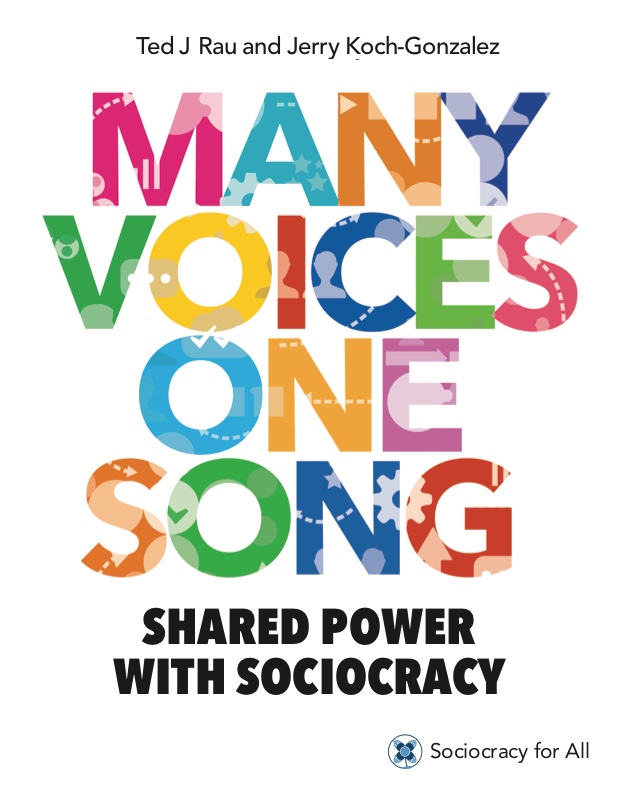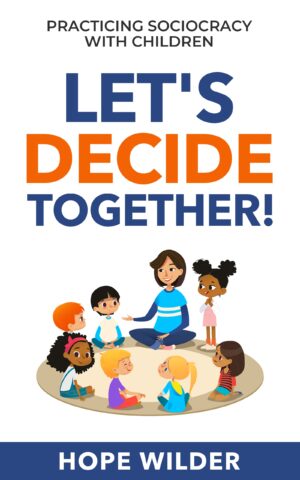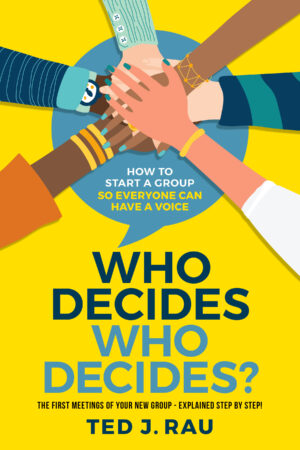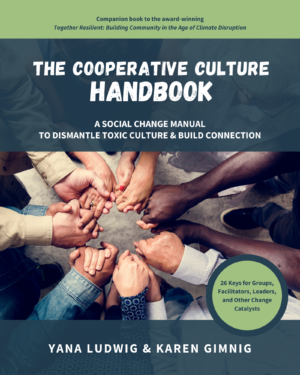Description
Many Voices One Song: Shared Power with Sociocracy
By Ted J. Rau & Jerry Koch-Gonzalez from Sociocracy for All
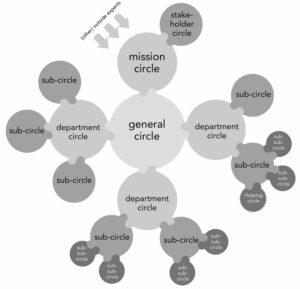
www.sociocracyforall.org
Many Voices One Song is a detailed manual for implementing sociocracy, an egalitarian form of governance also known as dynamic governance. Sociocracy means governance by those who associate together. This book is based on the Sociocratic Circle-Organization Method (SCM) developed in the Netherlands by electrical engineer Gerard Endenburg, based on earlier work of educator Kees Boeke.
Available in print and ebook, in both English and Spanish language, this book includes step-by-step descriptions for structuring organizations, making decisions, and generating feedback. The content is illustrated by many diagrams, tables, examples, lists, skits, and stories from the field.
Many Voices One Song covers four major areas:
1. Sociocratic organizational structures based on linked teams (circles) that distribute authority from the top of organizations to the most frontline teams that are appropriate. These teams are linked by both top-down leaders and bottom-up delegates to ensure that influence and power are shared in a circular rather than linear hierarchy. Organizational diagrams illustrate different ways to structure organizations in an egalitarian way.
2. Decision making by consent, defined as no one having an objection to a proposed decision. Consent is a participatory and inclusive approach to decision making, in contrast to win-lose voting and most forms of consensus. Decision-making steps (understand-explore-decide) detailed include proposal generation and the proposal to consent decision-making process. The book also outlines the steps for selection of people to roles in open dialog processes.
3. The insights of compassionate communication (Nonviolent Communication/NVC) are integrated into the context of decision making. Meeting format and design, including facilitation skills and processes that ensure that all voices matter in decision making.
4. Feedback processes for evaluating the effectiveness of meetings, policies, workflows, and role performance support an ongoing learning cycle and continuous improvement, not just in production and delivery but in the embodiment of equality itself. The intent of this book is to contribute to the spread of sociocracy by making information available. Egalitarian self-governance needs to be simple enough so everyone can share power in a healthy way.
2018, paperback, 294 pages
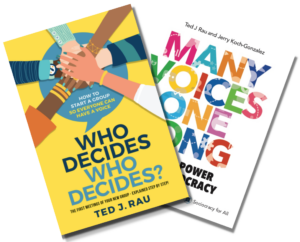 Many Voices advise to buy the bundle and save money.
Many Voices advise to buy the bundle and save money.
When you also purchase its companion book, Who Decides Who Decides, you save 25% on both books!
Who Decides Who Decides is the essential guide on how to form a group within 3 meetings and establish shared power and self-management. Any group can form itself using the template outlined in this book. It works especially well if the founders and early members want to grow and nourish an organization that gives every member a voice and is effective.

